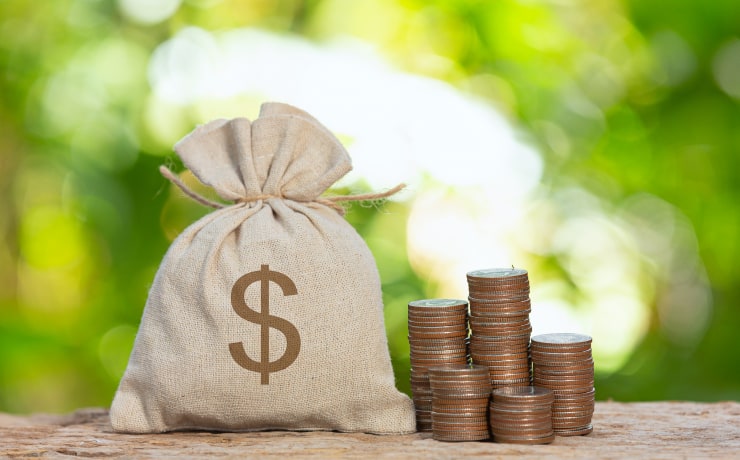Beginner’s Guide to Financial Literacy: Smart Money Management for Teens & Young Adults
Money is a vital part of our lives, just like food and water. The difference? You can buy food and water only if you have money. Yet, many people still lack basic financial literacy. That’s why schools, communities, and organizations are now emphasizing the importance of financial education to help individuals manage personal finances effectively. This guide will help teens and young adults understand the basics of financial literacy and take the first steps toward financial independence.
- Term Insurance
- Investment Plan
What Is Financial Literacy?
Financial literacy refers to managing money wisely to ensure financial stability and achieve long-term financial goals. It not only helps you build wealth but also provides financial security in the future. One can develop financial literacy through financial education and learn about the concepts like savings, budgeting, investment, and more. In simple words, financial literacy is the outcome of financial knowledge. It refers to the ability to understand and apply the skills to make sound financial decisions.
The personal finance planning depends on 5 key aspects:
-
Savings
-
Investments
-
Budgeting
-
Debt management
-
Financial planning
Why Is Financial Literacy Important for Beginners?
Financial literacy for beginners is essential to enjoy financial freedom and make the right investment decisions. With the rise in inflation in each sector, it has now become more important for everyone to prepare for the future wisely. The financial literacy curriculum also teaches individuals the need of saving at least equivalent to your 4-5 months' income. This is because it ensures that you are financially protected in case of emergencies.
What Are the 7 Steps of Financial Success for Beginners?
Proper planning with financial literacy knowledge helps an individual manage their finances effectively. However, thoughtful financial planning is divided into the process. Given below are the 7 steps of financial planning for beginners:
-
Define Your Financial Goals
The first step in personal financial education is to set your goals clearly. You can either set a long-term goal like child education or a short-term goal depending on your need. Whatever goals you set, make sure that they are not only realistic but also achievable and time-oriented.Tip: Follow the SMART (Specific, measurable, achievable, realistic, and time-oriented) rule for goal-setting.
-
Collect Financial Details
Another step in basic financial literacy is to collect and assess your complete financial information thoroughly. Collect certain documents like insurance plans, bank statements and more to determine your total income and spend towards different areas wisely.Tip: Monitor your expenses monthly to align the budget with your financial goals.
-
Assess Your Current Financial Status
Learning financial literacy provides a complete overview of your financial commitments. Hence, prepare a list highlighting all your financial obligations like expenses and debts. Analyse the risk associated with each obligation and revise your investment portfolio accordingly.Tip: Use a sheet or google doc. for budgeting.
-
Prepare a Budget
Financial literacy education and budgeting helps you monitor your expenses and income regularly. While preparing a budget, ensure that you diversify your investment portfolio into both long-term and short-term options. What’s more? Ensure that you consider learning debt management when learning basic financial literacy.Tip: Assign a part of your income towards life insurance plans like term insurance to protect your family against the unfortunate demise of the policyholder.
-
Create an Emergency Fund
An emergency fund is essential to fund the unexpected financial emergencies of life. Make sure that you prepare a budget that focuses on accomplishing goals while creating an emergency fund. In personal finance education, you can learn the right investment products for wealth creation.Tip: You can also get financial knowledge from expert advisors of PolicyBazaar.
-
Invest in the Right Financial Product
There are many financial products available according to risk tolerance and financial goals of individuals. Financial literacy for beginners course helps the investor assess their financial health and select the right product to invest wisely.For example, suppose a breadwinner for the family of 5 people has responsibilities and their risk tolerance will be low. Thus, they can choose life insurance plans like term insurance to maintain the financial stability of their loved ones even in their absence.
-
Review and Customise It Regularly
Your financial strategy also needs a constant check. Monitor your budget continuously and improvise it according to your observations. Moreover, keep updating your budget as your income increases during the year.
Conclusion
Understanding basic financial literacy is crucial for both young adults and teens. One should even learn personal financing in their childhood to maintain financial discipline throughout their life. Although there are many investment options available in India, the best way is to get a life insurance plan like term insurance for a stable future. Term insurance is a pure protection plan that guarantees financial coverage to the loved ones in your absence.
Note: Calculate term insurance premium using PolicyBazaar online term insurance premium calculator.
FAQs
-
Q: What are the golden rules of financial planning?
Ans: The golden rule for financial planning and budgeting is the 50/30/20 rule. This means that 50% of your income will go to needs, 30% to wants, and 20% to savings. -
Q: What is the 50/30/20 rule in financial planning?
Ans: The 50/30/20 rule in financial planning means that 50% of your income must be used for needs, 30% is for wants, and 20% must be used for savings. -
Q: What are the common mistakes in financial planning?
Ans: The common mistake in financial planning is the unnecessary spending. An individual loses track of their expenses while using credit cards and falls into the trap of never-ending payments. -
Q: What does 'risk' mean in financial planning?
Ans: Risk in financial planning refers to the certainty of the loss that investors might face from their investment portfolio.






























